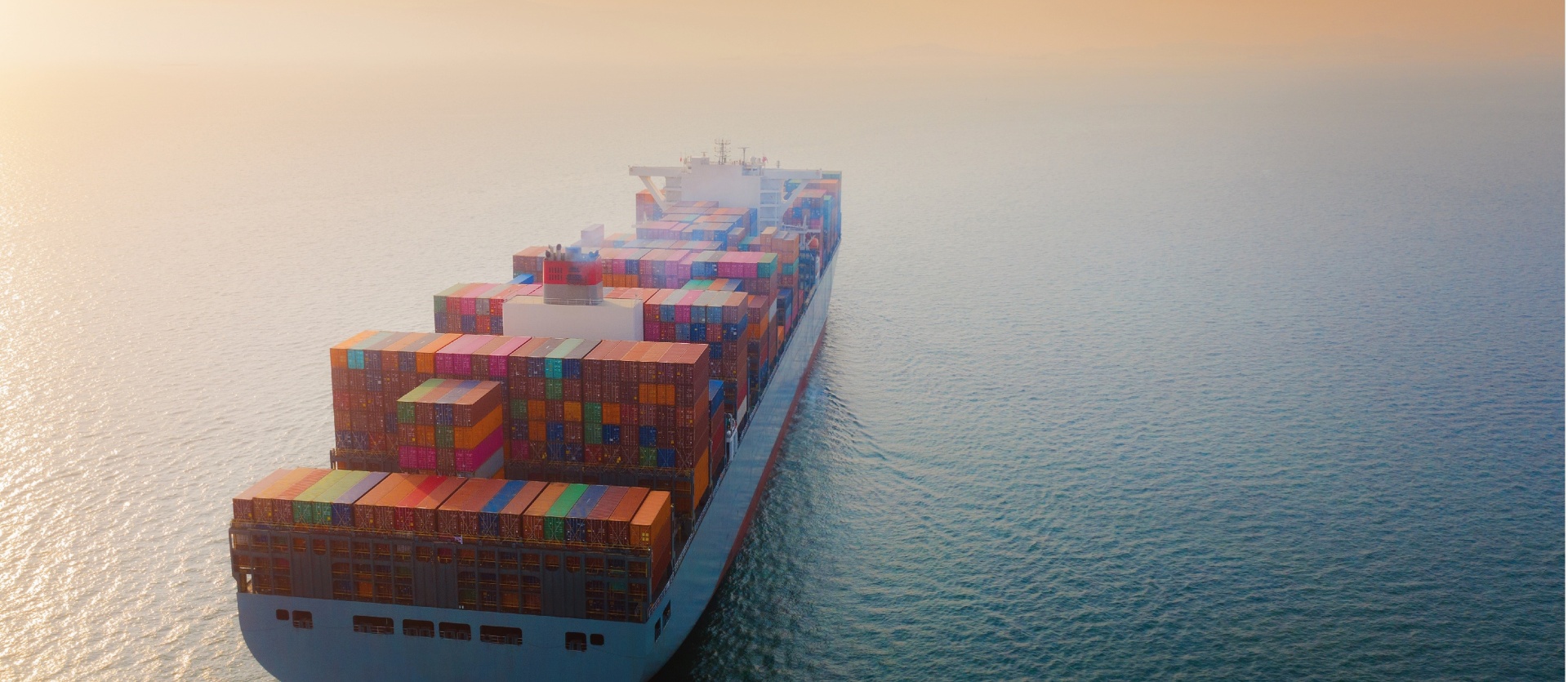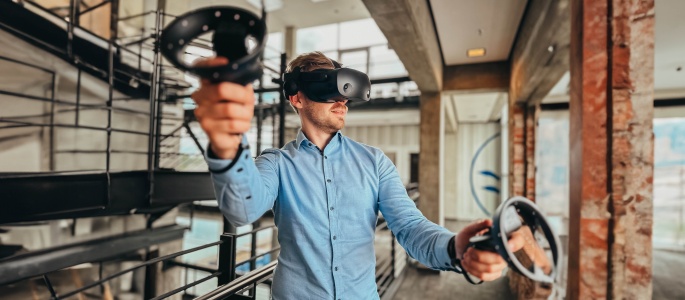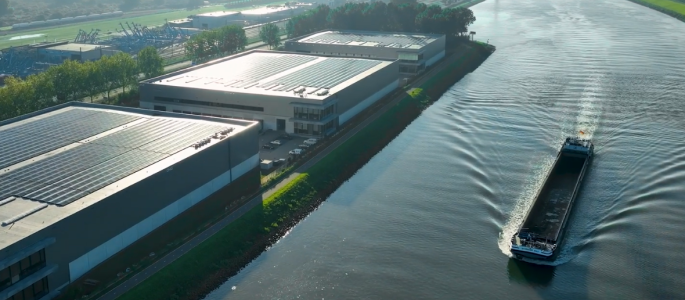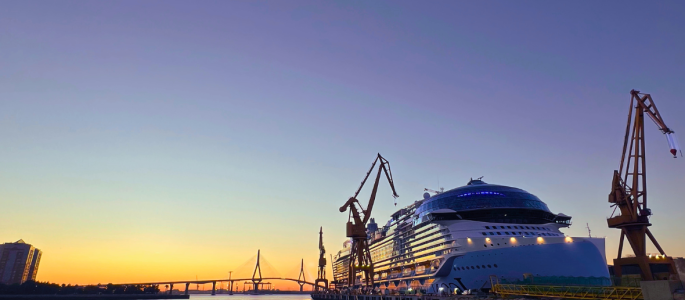
IMO 2020 Regulation: What's the Impact on Global Ocean Freight?
Since January 1, 2020, container ships worldwide are only allowed to refuel with fuels with a maximum sulfur content of 0.5 percent. This Low Sulfur Fuel (LSF) is intended to massively reduce the industry's ecological footprint. What impact does this have on the industry?
The regulation of sulfur emissions - called IMO 2020 - keeps shippers, freight forwarders and shipowners alike in suspense. It is the first of a whole series of measures by the International Maritime Organisation (IMO) to reduce environmental pollution. The main aim of the sulfur cap, is to reduce the release of sulfur oxides, thereby minimizing the harmful effects of global shipping on health and the environment. To date, the sulfur limit of 3.5 percent sulfur in fuel has applied worldwide.
The so-called Emission Control Areas (ECAs) are exempt from the new 0.5 percent limit, and an upper limit of 0.1 percent already applies to them. In East Asian coastal areas, for example, this limit was already established in 2015. In addition, an ECA with a limit value of 0.1 percent will also be introduced in the Baltic Sea and North America from 2020.
Saving sulfur emissions - but how?
The emissions regulation means that ships must significantly reduce their emissions both on the high seas and in coastal areas. Shipping companies have three options for keeping their combustion-engine ships operational in 2020:
- Retrofit to LNG (liquid natural gas)
- Installation of a "Scrubber" (exhaust gas purification system)
- Use the expensive LSF
Retrofitting to LNG, as well as the installation of the cleaning systems, will lead to the need to remove ships from the timetable, at least in the short term. This islikely to further fuel the shortage of cargo space and thus the rise in rates.The installation of the "scrubbers" ensures that pollutants are removed from the ship's exhaust gas so that conventional, higher-sulfur fuels can continue to be used. Due to manufacturer-related capacity reasons, however, the possibilities for installing the "scrubbers" are limited and expensive. Moreover, it is not certain how the prices and availability of the current high-sulfur fuel (IFO 380) will develop after 2020. Higher surcharges or total rates for shipments are also likely to be due when bunkering the expensive LSF.
How do carriers react?
Maersk Line has already announced in 2017 that it will increasingly rely on LNG in the future. However, the world's largest container shipping company is expecting decades before the entire fleet is replaced by LNG ships. Other carriers (ONE, MSC, Hapag-Lloyd) are relying on a mix of the various possibilities for reducing Sulfur emissions.
In fact, the use of low-sulfur fuel, the conversion to LNG engines, as well as the installation of "scrubbers" are all associated with considerable costs. In order to compensate for these additional costs (MSC expects 2 billion US dollars), the shipping companies have already announced surcharges: BAF - Bunker Adjustment Factor (Maersk Line), BRC - Bunker Recovery Charge (MSC), MFR- Marine Fuel Recovery (Hapag-Lloyd) or OBS - One Bunker Surcharge (ONE).
The level of the bunker surcharges is subject to various factors, such as the general crude oil price, and can therefore not yet be precisely quantified. In any case, the different calculation bases of the shipping companies lead to a non-transparent pricing. The carriers only agree that sea freight will continue to be the cheapest mode of transport. According to Maersk, the transport of a single television set from Asia to Europe, for example, will continue to cost no more than two US dollars.
How does Hellmann react?
In order to counter the lack of transparency of bunker surcharges and to be able to offer our customers reliable prices, Hellmann is introducing its own calculation basis, the Pelorus BAF formula, on January 1, 2020. This formula is checked monthly and adjusted to the crude oil price. Customers with spot quotes and contracts with a term of up to three months can thus be assured of a transparent price on a monthly basis that is directly market-oriented. For customers with longer contract terms, a 2-month or 3-month review of the Pelorus BAF can also be agreed in individual discussions in order to be able to guarantee customers more stability in the medium term. Hellmann is thus positioning itself as a transparent partner in a market that is still uncertain.
Despite all the uncertainty about rate developments in global ocean freight, however, one thing remains to be said: reduced sulfur emissions will make container shipping significantly "greener", which takes account of the current climate debate. Hellmann CEO Reiner Heiken recently shared this view in a statement for the Frankfurter Allgemeine Zeitung: "Today, environmental protection and sustainability are central criteria for the economy, which must also be taken into account in operational business - this applies in particular to the transport sector. Against this background, we consider the new bunker surcharges to be fundamentally right, because as an industry we have to live up to our responsibility," he said.
The CEO also has a clear opinion on the consequences of the regulation: "There is no doubt that the shipping companies will pass on the additional costs caused by the new regulations to the shippers. However, not all shipping companies have yet published their calculation bases. Should there be major discrepancies or non-transparent methods, we will of course enter into negotiations with the shipowners in order to ensure competitive prices for our customers."
An efficient alternative: Rail Solutions International
We offer our customers a safe way to avoid rising sea freight rates with rail transports on the "Iron Silk Road". Together with strong partners, we operate weekly block trains between China and Europe with capacities of up to sixty 40-foot containers per departure. The service is aimed at transport solutions for LCL and FCL consignments.
In both Asia and in Europe, we also enable the pre- and post-carriage of all goods within our transport network by rail or road. In addition, we increase the efficiency of rail transports through additional services such as customs clearance (also in transit countries), cross docking, LCL shipments, HUB and warehouse solutions as well as fiscal representations.
Why put your money on the rail? Your advantages at a glance:
- Cost savings compared to air freight
- Shortlead times compared to sea freight
- Increased price stability and low market volatility
- Economical solution for heavy and bulk materials
- Environmentally friendly transports with significantly reduced CO2 emissions
Place your non-binding transport enquiry now and benefit from our efficient solutions in intercontinental rail transport.
Your Contact:





